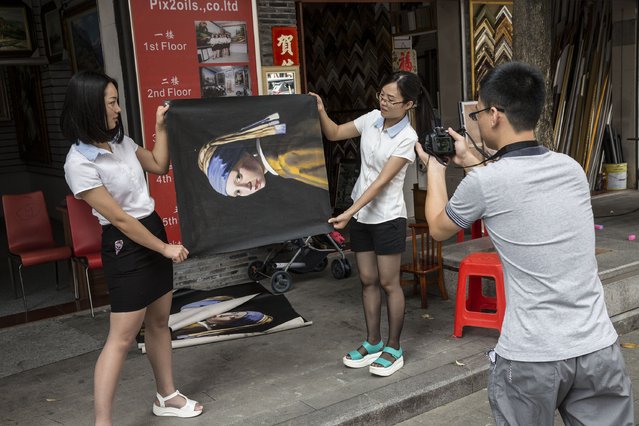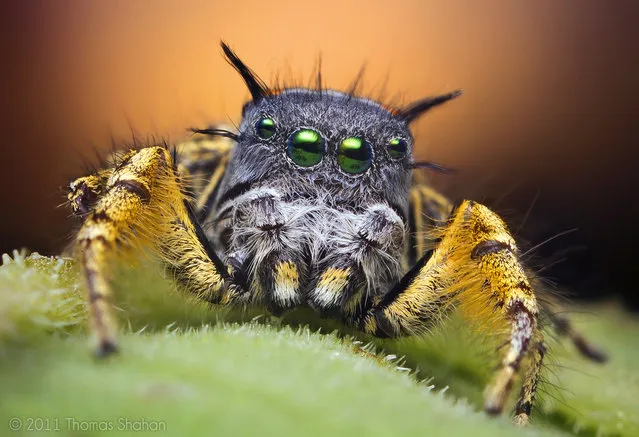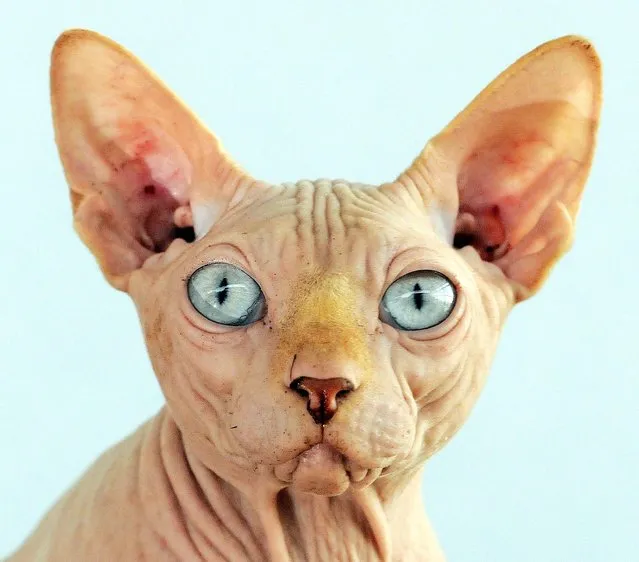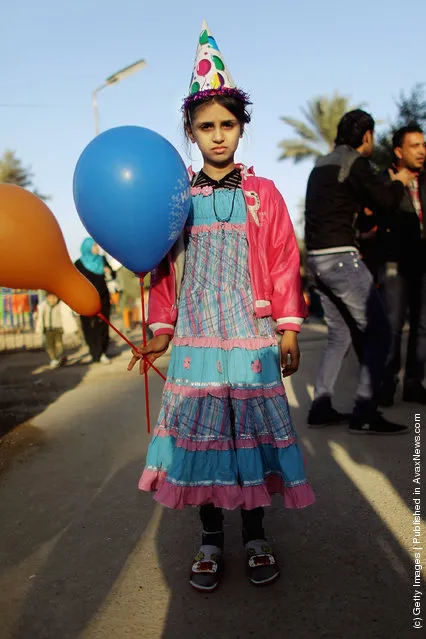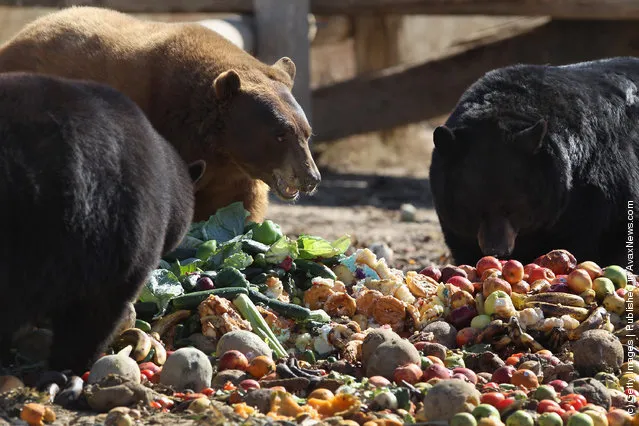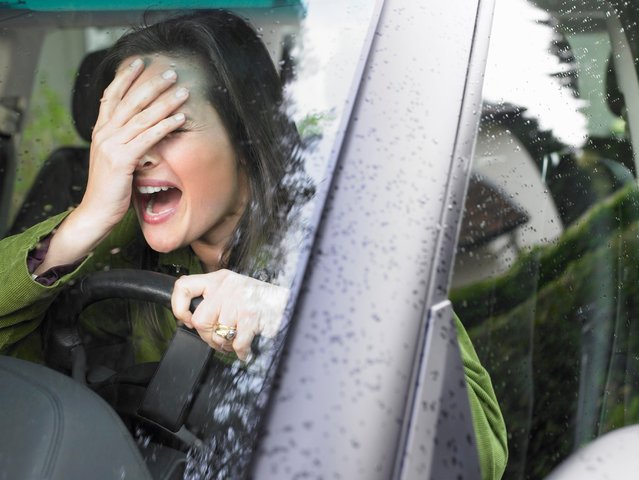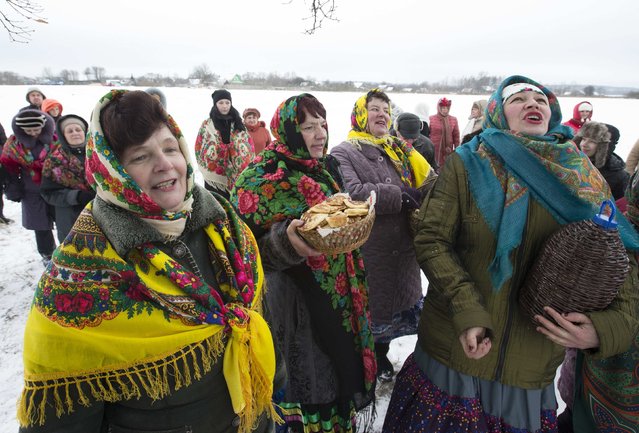
Villagers take part in Kolyada holiday celebrations in the village of Martsiyanauka, east of the capital Minsk, January 21, 2015. Local residents took part in the celebrations to mark the end of a pagan winter holiday Kolyada, which over the centuries has merged with Orthodox Christmas celebrations. (Photo by Vasily Fedosenko/Reuters)
22 Jan 2015 13:48:00,post received
0 comments

